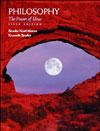 |
1 |  | 
What is the form of the ideal state, according to Plato? |
|  | A) | It is an absolute monarchy run by the most powerful for his or her own sake. |
|  | B) | It is a direct, participatory democracy in which every citizen has an equal share in ruling. |
|  | C) | It is an aristocracy ruled by an elite group of intellectually superior individuals. |
|  | D) | Plato did not think that there is any single form that the ideal state must take. |
 |
 |
2 |  | 
What is the form of the ideal state for Aristotle? |
|  | A) | It is an absolute monarchy run by the most powerful for his or her own sake. |
|  | B) | It is a direct, participatory democracy in which every citizen has an equal share in ruling. |
|  | C) | It is an aristocracy ruled by an elite group of intellectually superior individuals. |
|  | D) | Another trick question! Aristotle didn't think there is any single form that the ideal state must take. |
 |
 |
3 |  | 
What is not true of the natural law, for St. Augustine and St. Thomas Aquinas? |
|  | A) | When there is a conflict between it and human law, human law takes precedence. |
|  | B) | It is the eternal moral law of God made manifest to human conscience and reason. |
|  | C) | It is the same for all people everywhere. |
|  | D) | It is the standard by means of which the justice of human laws is measured. |
 |
 |
4 |  | 
What is not true of the contract that gives rise to the state, according to Thomas Hobbes? |
|  | A) | It is a mutual agreement between the people, not between the people on the one hand and the state (Leviathon) on the other. |
|  | B) | Each person transfers to the state all of his or her powers and all of his or her natural rights of self-defense. |
|  | C) | It gives citizens a right to revolt if the state acts unjustly towards them. |
|  | D) | It establishes an absolute authority with the power to force people to abide by their agreements. |
 |
 |
5 |  | 
Which best describes Locke's governmental contract? |
|  | A) | The people collectively give up their natural rights to a single sovereign power who is not a party to the agreement. |
|  | B) | The people delegate or entrust their natural rights to a divided government, retaining the right to revolt if the government violates its trust. |
|  | C) | The people collectively agree to let the most intelligent among them, the philosophers, rule them. |
|  | D) | When will you tire of these trick questions? Locke wasn't a contract theorist. |
 |
 |
6 |  | 
What is true, moral freedom, according to the later Rousseau? |
|  | A) | Obedience to the will of all. |
|  | B) | Obedience to the general will. |
|  | C) | Obedience to the will of God. |
|  | D) | Doing whatever you want to do without interference from others. |
 |
 |
7 |  | 
In which of the following was the power of the Supreme Court to declare laws unconstitutional established? |
|  | A) | The Declaration of Independence |
|  | B) | The original Constitution |
|  | C) | The Bill of Rights |
|  | D) | Marbury v. Madison |
 |
 |
8 |  | 
Which did Harriet Taylor support? |
|  | A) | The toleration of nonconformist thought and lifestyles. |
|  | B) | The belief that virtually all differences between men and women are natural. |
|  | C) | The view that social and political reform concerning women should be limited to giving them the vote. |
|  | D) | The view that consequences don't matter when it comes to determining the rightness or wrongness of our acts, rules, or institutions. |
 |
 |
9 |  | 
John Stuart Mill believed that |
|  | A) | one has God-given natural rights. |
|  | B) | one should seek personal happiness. |
|  | C) | one should seek general happiness. |
|  | D) | one should seek happiness for others. |
 |
 |
10 |  | 
Karl Marx viewed history as the struggle between two classes. What are they? |
|  | A) | A dominant class consisting of men and a subordinate class consisting of women and children. |
|  | B) | A dominant class that owns and controls the means of production and a subordinate class that doesn't. |
|  | C) | A dominate class of white Europeans and a subordinate class of nonwhite non-Europeans. |
|  | D) | A dominant class of the priesthood and a subordinate class of the laity. |
 |



 2002 McGraw-Hill Higher Education
2002 McGraw-Hill Higher Education